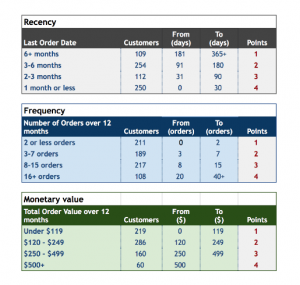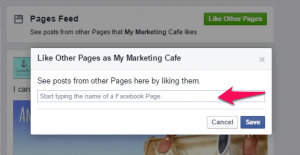As you might have already experienced, it is not unusual for small businesses to be short on cash. Depending on the industry you operate in, you might find yourself stacking up unpaid invoices from clients. That can cause a negative influx of cash, which would halt your business — one solution to this issue by factoring your invoices.
If you own a coffee shop, likely, you might never run into this problem; most customers will pay up-front. Conversely, other industries — trucking, construction, landscape, etc. — are by default on a net 30.
A recent study reports that 46% of small businesses are consistently receiving late payments from clients and customers. Similarly, more than half of small business owners confirm that late payments negatively affect their cash flow.
One solution to your cash flow problems is to factor your invoices. The greatest advantage of factoring is that it puts money in your pocket while maintaining a steady cash flow.
If you are considering factoring solutions, here are a few things that you should know:
What is Invoice Factoring?
In short, factoring is a financial transaction where a business sells invoices to a third-party company for a discount. Factoring is also referred to as accounts receivables factoring or accounts receivables financing.
Most small businesses will run into a cash shortage at some point. Thus, the idea of factoring receivables is to help meet the immediate cash needs.
For instance, you hired a new employee and they worked a full week. The client will take at least 30 days to pay for the work completed during the week. At that point, you can sell the invoice, or invoice factoring, to free up the money to pay your employee’s salary.
How Does It Work?
A factoring company purchases your open invoice anywhere around 80 to 90% of the invoice’s value. After the factoring company purchases your receivables, they will collect from your customer directly.
However, that is not always the case. Depending on the company you choose, they will require you to contact your client and collect the invoice. There is also a possibility of recourse (more on that later).
Once the customer pays the invoice, you will receive the remainder of your invoice minus the fee that the factoring company charges.
This is a great option if you have to wait 30 or more days to receive your clients’ payment.
Factoring Solutions Pricing
Just like lending services, factoring companies have to go through a process before committing to purchase your receivables — check credit scores, amount of money you want to factor, number of monthly invoices, etc.
Most factoring solutions will charge anywhere from 1 to 5% fee. This number could change depending on how long your customer takes to pay the invoices.
For example, if you want to factor a $ 1,000 invoice. Upon approval, you will receive $ 900 in cash for the invoice. Once your client pays, you will receive the remainder of the invoice minus the fee. If the fee is 5% ($ 50), you will get $ 50.
Keep in mind that these numbers will drastically vary depending on the agreement you can reach with the factoring company.
Your best bet is to find companies that offer a large percentage upfront and charge low fees. Some companies offer up to 95% of your invoice and charge a fee of less than 1%.
Benefits of Factoring Solution
As mentioned before, factoring is a great way to improve your cash flow. Here are some great benefits:
- Fast Cash: Obviously, when factoring your invoices, you will attain cash a lot faster than if you wait for your customer to pay for the outstanding invoice.
- Easier than applying for a loan: A loan usually requires time and lots of paperwork. A factoring solution is straightforward. If approved, many companies will have the cash available within 48 hours after you apply.
- Easier requirements: The requirements are pretty straightforward. Your company must be in good standing with the government and clients, free of liens and legal problems.
- A new business can take advantage: Due to credit history, a new business might struggle to get a traditional lender. Factoring does not require a profit history or high-profit margin. Thus, in such cases, factoring is most likely the only solution.
- Growth: Factoring can help grow your business. When you access more funds, you are more likely to find new customers.
Drawbacks of Factoring Solutions
Factoring can also be risky for a few reasons. Consider the following elements:
- Factoring rates are usually higher than the traditional line of credit. While you get your cash a lot faster with less paperwork to deal with, rates are typically higher than a traditional loan (if you have good credit).
- Your customers might be contacted. Many factoring companies will contact your customer directly. In some cases, loyal customers might not like to deal with another company, and they might frown upon the idea.
- Doesn’t fix a financial problem. A factoring solution will temporarily improve your cash flow. However, it will not fix fundamental financial problems. For instance, if you are not profiting enough.
Recourse Factoring
When trying to find a factoring solution, one thing to keep in mind is recourse. If the company is not able to collect the invoice, you are forced to pay it back.
In such an event, it will put you in a worse financial position than before.
Therefore, when shopping for a factoring solution, you should consider going with companies that offer non-recourse factoring.
How to Select the Best Factoring Company
There is a large number of factoring companies. Before selecting one, you must take into consideration your business needs.
The first step is to ensure you can resort to this service. Some factoring companies only work in certain industries. For instance, CapitalPlus specializes in construction companies.
Moreover, some companies ignore your credit score and focus primarily on your customer’s ability to pay. Keep in mind that such factoring companies will not purchase invoices from customers that are high risk.
Another important element to consider is the funding process and how long it will take for them to approve your application. The best services have a turnaround of no more than 48 hours.
Before signing anything, be sure that you understand all of the requirements and fees. Read the contract, and ask questions. Please don’t take their word for it. If it is not written in the contract, it did not happen.
Factoring Solutions in 2021
January is proving that 2021 is going to be another year of uncertainties — the pandemic raging, political and social unrest, businesses closing, etc. Credit card companies are tightening their credit limits, and banks are more cautious to lend.
With a smaller credit line, small businesses are turning to invoice factoring solutions to access capital. Thus, the demand will continue to increase.
For 2021, when choosing your factoring solution, some companies might turn you away if your invoice is more than 45 days past due.
Also, be sure to select a reputable factoring provider and try to understand their terms before signing the dotted line.
Conclusion
Factoring your invoices is a great solution to increase your cash flow. It puts money in your pocket and requires far less paperwork than a traditional loan. However, factoring is not offered to every industry, and there are some drawbacks.
Before you make a decision, you should analyze all of your options and act accordingly. If you choose to go with factoring, there are many things to consider when choosing a company. Those should all be based on your needs.
What are your thoughts?
Business & Finance Articles on Business 2 Community
(27)




